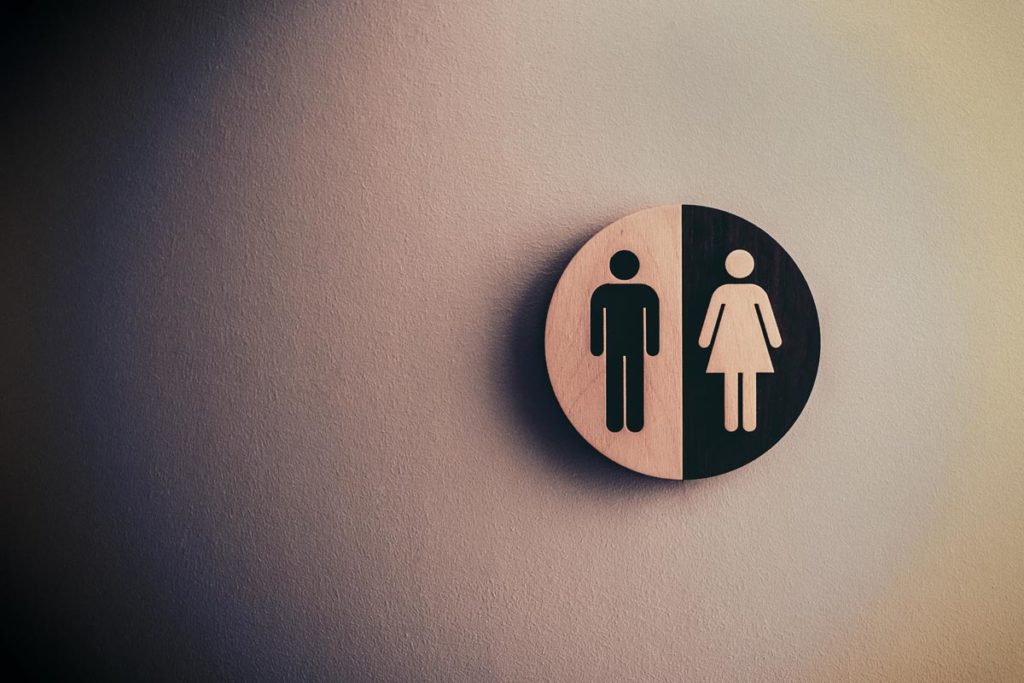For an estimated 1 in 100 people, gender assigned at birth doesn’t match with the gender that they are. This phenomenon, known as gender dysphoria, is extremely common and can result in extreme physical and mental health repercussions including anxiety, low self-esteem, and feelings of wrongness or revulsion when looking at themselves or their body. Gender dysphoria varies in severity but can have significant and lasting impacts on mental health, by impacting not only that person’s perceptions of themselves but also how they are perceived and treated in the world around them.
Experiencing gender dysphoria can be extremely traumatic on its own. Yet, many people facing gender dysphoria experience other trauma and social stressors at the same time, further increasing risks. Understanding how gender dysphoria impacts mental health and how can help you to make better decisions in getting treatment, understanding behavior, and choosing better coping mechanisms.
Increased Social Stressors
Most people experiencing gender dysphoria find themselves pushed into fitting in with similarly presenting peers. Failing to do so and failing to feel like part of the group is traumatic and a social stressor on its own. Children and young adults want and need to feel like they belong to the social group, but gender dysphoria essentially means they are living in a different world with different concerns – of not fitting into their own body.
Other social stressors, including repression, internalized transphobia, at-home abuse relating to gender identity or presentation, and bullying outside of the home or on social media are also major factors. Individuals experiencing gender dysphoria don’t fit in, often don’t receive the supportive environment they should at home and are instead faced with a world where they are outsiders and others don’t understand them. That can lead to feeling unwanted and overwhelmed, like an outside, and like no one cares.
Essentially, children facing gender dysphoria are more likely to have traumatic experiences outside of the home, less likely to have friends and good social networks, and less likely to get social support in the home. While this is not universally true, it does greatly increase risks of mental health disorders. That naturally results in significant problems with self-image, self-esteem, feelings of shame, and depression. As a result, many cope by using substances, by developing eating disorders, or by using self-injury.
Increased Vulnerability to Mental Health Disorders
Individuals with gender dysphoria are significantly more likely to experience a mental health disorder. This is largely due to the combination of internal and external pressure and judgement creates added risks for emotional turmoil, for experiencing trauma, and for development mental health disorders including depression, substance use disorder, and suicidality.
That aligns with everything we know about how traumatic events and situations increase the likelihood of mental health problems. For example, the Adverse Childhood Experiences study assessed the mental health of over 72,000 children over 20 years to share how trauma directly correlates to mental and physical disorders and risks in adulthood. For individuals with gender dysphoria, trauma begins as soon as dysphoria does, greatly increasing risks and vulnerability to mental health disorders. That becomes more visibly dangerous to the people affected when you look at statistics showing that 40% of transgender adults have attempted suicide. Decreased support in the home, increased exposure to trauma, and increased mental health risks kill people.
Identity and Body Dysphoria are Traumatic
For most people, the body is part of the self, for someone with gender dysphoria, the body may feel like anything but home. Coping with body parts that don’t feel right, with physical sensations of wrongness, and with revulsion at the self is extremely traumatic and difficult. Gender dysphoria can manifest in many ways, but the experience of it can often be a feeling of alienation from the self. That in itself is stressful and traumatic.
Get your question answered now.

Signs of Gender Dysphoria Impacting Mental Health
If you or a loved one is experiencing gender dysphoria, it often manifests in a strong desire for different sexual characteristics (none, the opposite gender, etc.), feelings of not belonging in one’s body, feelings of having the wrong voice/body parts/physical makeup, and feelings that social behavior and traits are wrong for you. These can be coped with and dealt with in healthy ways and many people who experience gender dysphoria never experience mental health problems. However, many do, and symptoms often manifest as depression and anxiety.
- Lethargy
- Feeling anxious or having anxiety attacks
- Panic attacks
- Extreme low self-esteem / self-image
- Drops in personal hygiene/self-care
- Abusing drugs or alcohol to cope
- Using hyper-controlling behavior such as food-restriction or cutting to get in control of something
- Increases in unnecessary risks or impulsive behavior
- Withdrawing socially or isolation
Any of these symptoms is a sign that someone needs help, even if they have no history of other problems.
Getting Help
If you or a loved one is struggling, therapy and counseling are always a good place to start. Gender dysphoria is not something you can treat. Instead, treatment often involves helping individuals to come to terms with how they feel, to either cope with how they feel or take steps to change their body, and to undo the damage of trauma and social stress which make those problems worse. Often, this requires significantly personalized treatment plans, where treatment likely tackles problems from the perspective of how much damage they cause. E.g., if you’re suicidal or self-harming, treatment will focus on that first before moving onto building positive and healthy coping mechanisms and dealing with underlying trauma and problems. Other therapies, like substance use disorder treatment, nutrition therapy, and sleep and stress management are also often common, but normally complement whatever treatment you’re getting. At the same time, they may be an essential part of getting back on your feet, depending on current mental health.
Here, finding the right kind of help is important. Your therapist or healthcare provider should be specialized in providing help for transgender individuals, should understand cooccurring or dual diagnosis disorders, and should be able to work to provide you a safe and discrimination-free environment as you seek out treatment.
If you or a loved one has gender dysphoria, it often comes hand-in-hand with significant mental health problems including trauma, increased social stress, and lack of coping mechanisms. Getting treatment can allow you to build a basis of healthy coping mechanisms so you can cope better, can work to improve how you feel, and can take steps to improve your social networks and daily habits so you feel better every day. While treatment is never “that simple”, it does help.
If you or you loved one need help with mental health treatment, drug rehab, or alcohol rehab Compassion Recovery Center is here to help. Contact us to ask about our mental health programs and how we can support your specific requirements as you move into treatment.










